Merck & Co and Ridgeback’s molnupiravir reduces risk of hospitalisation and death, and may work against other coronaviruses
An investigational antiviral drug cuts the risk of hospitalisation or death in patients with mild-to-moderate Covid-19, according to interim trial results from Merck & Co and Ridgeback Therapeutics. Virologists say the drug, molnupiravir, should work against other coronaviruses too.
‘This will probably be recommended for high-risk [Covid-19] patients,’ says Robert Shafer, infectious disease specialist at Stanford University, US, who thinks it ‘will save thousands of lives, especially in areas where there is no access to monoclonal antibodies.’
The interim analysis looked at 775 patients. Around 7% of patients on molnupiravir were admitted to hospital or died within 29 days, compared with 14% of patients given placebo. There were no deaths in the antiviral tablet group, but eight in the placebo group. The trial included non-hospitalised patients with confirmed mild-to-moderate Covid-19, and at least one risk factor – obesity, over 60 years of age, diabetes or heart disease.
The drug – previously known as EIDD-2801 – was discovered by researchers at Emory University, US. It mimics a building block of RNA and tricks the viral polymerase enzyme into placing it into the viral RNA strand, triggering catastrophic mutations.
‘Molnupiravir cannot be recognised by the proof-reading machinery of the virus, which is why it doesn’t remove this non-natural nucleoside from the RNA strand,’ explains Wai-Lung Ng, a medicinal chemist at the Chinese University of Hong Kong. He is also developing this class of antiviral compounds, termed nucleoside analogues, including to target coronaviruses.
Virologist Timothy Sheahan at the University of North Carolina in Chapel Hill, US, says ‘this should work against the endemic “common cold”-causing coronaviruses.’ Sheahan and colleagues Ralph Baric and Mark Denison collaborated with Emory prior to the pandemic, and discovered that the compound is effective against a range of coronaviruses, at least in mice.
We don’t know if there could be the potential to cause mutagenic or other side effects in humans
‘This drug is broad spectrum. It should work for all the coronaviruses,’ says Shafer. However, he adds that its use for endemic human coronaviruses will require clinical trials and should probably be confined to high-risk people. ‘It will likely be used for [Middle East Respiratory Syndrome] and will almost certainly be active against other coronavirus pandemics,’ he adds.
Sheahan says that ‘the enzymatic target of molnupiravir – RNA dependent RNA polymerase – is structurally conserved among RNA viruses. The shape of the enzyme and how it works is similar from coronaviruses to filoviruses like Ebola.’ The drug could therefore work against other RNA viruses, adds Sheahan, such as respiratory syncytial virus.
There have been concerns about side effects. ‘We don’t know if there could be the potential to cause mutagenic or other side effects in humans,’ says Ng, who notes that a metabolite of molnupiravir (N(4)-hydroxycytidine) is a potent mutagen of bacteria. A larger patient sample and longer observation time will be needed to properly determine these risks. The short duration of treatment should assuage some safety concerns, he adds.
Merck plans to apply to the US Food and Drug Administration (FDA) for an Emergency Use Authorization (EUA), allowing it to market the drug while continuing to collect evidence to support full approval. ‘The FDA will probably decide that if you are in a group at high risk of hospitalisation or dying, then the benefits of this drug outweigh any theoretical risks,’ says Shafer. It will not be authorised for women who are pregnant or who might conceive while taking the drug, he adds.
The US list price is $700 per course, but the drug should be cheaper in lower to middle income countries, as Merck is negotiating licensing agreements with generic drug makers. ‘The chemical structure of this molecule is relatively simple and Merck scientists have been optimising the synthesis,’ says Ng.
Merck expects to make 10 million courses by the end of 2021. The company has also begun to trial the drug for post-exposure protection for people who live in the same household as someone with Covid-19.
One of the key advantages of molnupiravir is that it is a tablet, unlike Gilead’s Veklury (remdesivir), which requires intravenous infusion. ‘Remdesivir has not been very impressive when used in hospitalised patients,’ says Shafer, though there are indications it performs better when given to outpatients, he adds. Either way, rapid diagnosis and delivery is key. ‘For antivirals, it is quite important to administer a drug early during the infection,’ says Ng. ‘If a patient gets into a severe situation, then my guess is that it would be harder to treat them with this drug. It is not a magic bullet.’




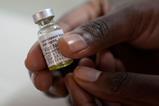

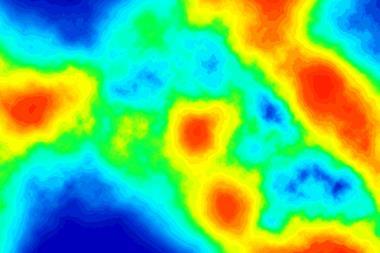


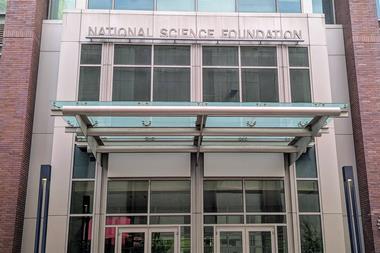

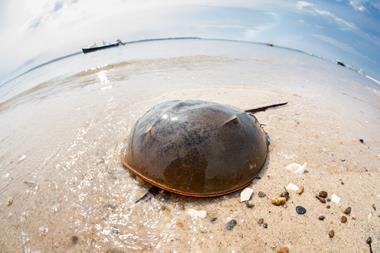
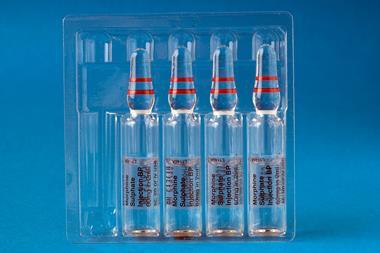

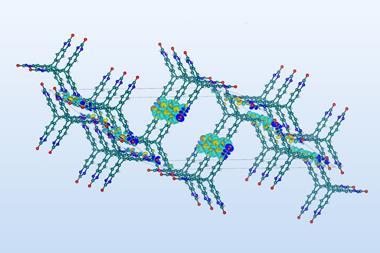

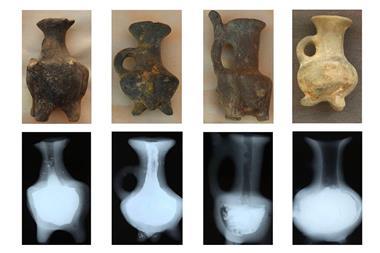
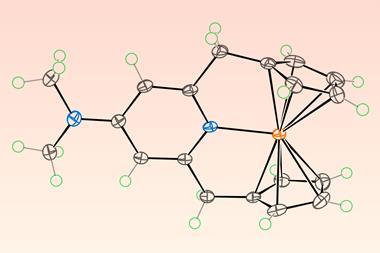
No comments yet